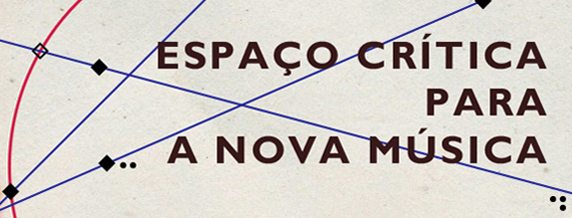Article by Sofia Sousa Vieira
English translation: Jakub Szczypa
With the genuineness of the one who leaves, having fulfilled her life until the end, one could say that on the right hand of this God who, as Antero de Quental, listened and did not understand, the heart of Francine Benoît, French and Portuguese, is now at rest. She found in music the enchanted palace of illusion. As the mortal flowers, with which one garnishes / The childish ignorance; she framed her whole life in the verses of the poet. It was marked by the ideal and passion of the one who was born to give to the others what was the most human in her – the ephemeral and imperfect form in the woman; and in the artist the faint child that the mother takes to the lap. Liberated heart, she crossed forests and seas without letting herself overcome by discouragement, which the Estado Novo provided her. From the sullen journey remained the work with which, while going down the narrow staircase, she deserved to rise where the memory is consent.
Teacher, pianist, musical critic and lecturer, Francine Benoît confirmed the significance of thought and work within her concept of art and music. In the context of the genealogical study – scarce in the first years, yet progressively enhanced according to the vast documentation found in her assets and available in print – her vocation for the sake of music can be considered as without precedent: for the cogency of knowledge, which she possessed and for the pertinence of her critique consciousness, which she demanded from herself and from others. The acknowledged multidisciplinary approach on the one hand, reflects, on the other, a solitary and introvert nature and a reserved character of someone who conceived music as an exercise of freedom, concurrent with styles and musical tendencies from all periods, of all the composers and performers, with an explicit, oriented (and lucid) preference, receptive to everything related with Portugal and with old (and new) Europe.
With regard to pedagogical intervention she manifested the greatest interest for music education in general, and for Portuguese music in particular. In its essence teaching constituted the esteem, which she had for the lessons of masters, in a historical and cultural context of harassment both by the Estado Novo (New State) and the Primavera Marcelista (Marcelo Caetano’s Spring); despite still having had the time to realize the dream of democratization within music education in schools.
Contrary to the Socratic lesson, whose priority was the rejection of teaching, Francine Benoît transformed her teaching experience into a dynamic and persuasive process, without parallel among us. In this sense, it is not surprising that she had dedicated her life and soul to music education, having always avoided to transform music into: a gift to adorn a number of ceremonies and an object to play a secondary role in more than a few entertainments. But in its essence it is the property or exteriorization of society, the best of society as we desire it, not everyone in the same manner[1].
With regard to musicological affiliation Francine Benoît had the capacity of fostering a legacy of musicians, composers and researchers, Portuguese and foreign, being advocate of a persistent and free pedagogical itinerancy. Her contribution to the analysis of the Portuguese music panorama, to music education and artistic research, was the culmination of a crucial improvement in value, intervention and range within diverse pedagogical areas, close to sharing knowledge, which the society, community and elites in constant update reclaimed. Were there any doubts, they would personify the thought and ideas of lasting origin and indisputable argumentation: I intend to work on the expansion of musical taste, thinking loyally of transmitting the necessary courage and confidence to whom dedicates oneself to musical career. If by any chance I manage to explain or teach in simple words what the common reader can understand, this will be for me a strong reason for happiness. I understand that I should defend an opinion, which requires a mutual understanding of the used terms and historical events; I try to strengthen myself as far as possible; if I am able to conduct successfully an essay on the concepts, which require technology and stance concerning aesthetic principles, I shall develop a sensation of fulfilment; yet I never go as far as I wish to[2].
Coherent in her ideology, she chose the socio-political action allied with the vision of the new man, or as one used to say in the past: with the same determination, which leads the human spirit to consider the truth to be lived first, before it is taught. Being entitled to philanthropy and possessing the gift, both peculiar to her, she would acknowledge: (…) I possess, from the backbone, the most purified desire of the Folk, inside a Community, which is divided in oppressors and the oppressed[3]. As she showed insistently in opinion articles and conferences, music culture is as the voice of the masters: it is the patrimony of all and it should reach everyone.
As a woman she never turned her back to the inevitability of change, of women’s emancipation towards the responsibility for education. This attitude permitted her to turn comprehension into a continued interpretation, stimulating a circle of music culture with feminist verve, which in her time denoted the appearance of a new line of music and critical thought, one would say of musicological scope. During her life she didn’t grow tired of emphasising the principles, which she always defended: (…) I do not work in search neither for fortune nor glory nor prestige (although I would not mind if one of these three charming brothers came to meet me)[4]; despite being conscious that the course to follow would be long and far away from the purpose of: knowing all the existing manifestations of art; yet the ones that we know awaken in us a true sense of gratitude, shared among the performers[5]. Thus the dissatisfaction is great, when she reviews concepts, very much in vogue, as the ones of total art form or of thought in transformation. Her first concern is rather the work’s reception, while revolting against the lack of knowledge on the fact that sometimes humanity is not conscious of the cult of paradox, responsible for the negation of the absolute, and sacrificing the evolution and transformation of human existence. For Francine Benoît, every individual functions as a social link, since: (…) every generation of humans forms, in its majority, an enormous equalization where the minority remains uneven, creating irregularities and forming itself in anomalies (…)[6]. As said by George Steiner, these are the impediments for realizing the dream where the temporal and historic context of sense, of the forms of expression and realization, would become integral with the capacity of reception and response[7].
According to his line of thought one used to live in a time, in which the individual continued being a carrier of emotions, sensations and the power of transmission, so that they were sought in physical contact, inside society; for there are the ones who ignore or, led by their greediness for Ideal, forget that the beautiful vision, in which or soul drowns, was modelled by other hands, with blood circulation identical to ours – perhaps more alive and even warmer…[8].
Francine Benoît used the word, written and spoken, as a method and mean for stimulating actions of social nature, to realize reconstitutions of social practice through the generations, projecting the past in the present and future by means of language[9]. According to Anthony Giddens spoken word is a mean, a trace, whose evanescence in time and space is compatible with the preservation of the sense, thanks to the spatial and temporal distantiation and the consequent elevation of the human domain[10].
Francine Benoît delivered her lectures in various places – homages, radio programmes, conference-concerts, photographic sessions, courses, presentations at the Universidade Popular Portuguesa (Portuguese Popular University), at the Asilo-Escola António Feliciano de Castilho (Asylum-School António Feliciano de Castilho), at the Academia de Amadores de Música (Academy of Music Amateurs) in Lisbon, at the Voz do Operário School, at the Institute of Music and the Faculty of Letters in Coimbra, at the National Conservatory of Music in Lisbon, the João de Deus Museum and the National Broadcaster.
The character of her dissertations/presentations ranges from philosophical and religious to a more critically oriented spirit, from intimate discourse to a more dialectic content. In its turn the applied communicative process is based on a dialectic oscillating between intellectuality and music. Despite their simple character, the exposition of ideas and line of thought are quite innovative as if for Francine Benoît teaching the art of sound was a “mission”, in which the primordial objective would be humanizing through music. For this purpose, she uses technical aspects of the work to be analysed through listening, in view of interpreting and transmitting to the listener the emotive beauty and the logical decoding of the works communicated by researchers. This in fact reverts in favour of the concerns that the citizen and woman puts in the use of words, in order to express the ideological models and capture the attention of the listener through musical moments.
The process of composition, as well as her scarcely emphasized affirmation in this domain, should be perceived in the musical, stylistic and cultural context of the 20th century. In the case of Francine Benoît the artistic processes are associated to moments of pure ideological and aesthetic incompatibility, culminating in ambiguous and obscure musical grammars. One finds here romantic influences taken from the work of Chopin and Strauss (piano works), as well as a preference for arpeggiated chords and lines of motivic counterpoint with references to the composers of the past – Partitia (1938). The tendency towards the change is intimately connected with the heritage received from her masters, therefore being materialized as a challenge. The adopted stance in the voice repertoire focuses the musical discourse on poetic concepts, associated with a lied structure and the romantic generation, preserving relevant imaginative capacities, with frequent use of harp and emphasizing a certain familiarity with Cláudio Carneyro and Fernando Lopes-Graça, among others: Nocturne (1917), Deus na Planície (1917), Sant’Ana (1928), Três Canções Tristes (1930).
However with respect to her works for children, written prolifically during the first years of her pedagogical activity, what gains advantage is a formal tendency towards the tonal processes correlated with academic sonorities and references of approaching the melody in the manner of Mozart or Beethoven – Para a Juventude Cantar e pular (1926).
Actually the great part of her musical repertoire of the first half of the 20th century was based on the works of Antero de Quental (translated by Francine)[11] and on the rediscovery of Afonso Lopes Vieira. Francine Benoît cultivated the tendencies of the Portuguese nostalgia (saudosismo), close to the generation of the neorealist poets – Cinco Canções portuguesas (1944). Her works reveal clearly the use of unprepared dissonances, providing strange combinations of sonorities, provoking real musical antithesis. The expressionist colours are exposed, mostly when they are inspired and subject to particular moments from her life, where the desperate interior cult constitutes in her musical work a kind of catharsis process, based on the mediation between the interior and exterior.
In the piano repertoire one can find some musical forms inside the stylized formal structure: Amen (1930, ballad), Variações sobre um tema original (1930), Sonatina (1944) and a series of pieces Nove peças infantis (1939) inspired in Schumann’s music. The virtuosity and technical conciliation appear later, after the 1940’s – Concerto para piano e orquestra (1940-42) and Concertino para mão esquerda (1981).
Now in the work Fantasía-Suite (1966), awarded at the Calouste Gulbenkian Foundation Competition, we follow procedures of neoclassical content with influences of Bartók’s language, close to axial harmony. The work was thought from the tonal/modal relation and the neoclassical procedures used in the melodic/harmonic structure.
In one of her favourite works, Cantata Infantil (1967) one finds influences of diverse character, from modalism to chromatism, and the use of modal elements on the one hand, and on the other, frequent chromatisms with fragments of hexatonic scale, as well as diminished and augmented intervals. We are confronting a work, which combines elements of transition from late romanticism to the modern music of the 20th century.
Guided by concepts of logical and philosophical nature, her thesis confirms formulas of integral and practical reasoning, what leads to admit that: geniuses are the labourers of the arts, in the sense where art is the result of the work. They manage to capture the harmony of the universe, within the evident necessity of creating specific conditions: there is no victory without fighting.
---
1 BENOÎT, Francine – Alguns dados biográficos, 1970, p. 2; private archive of the writer, Madalena Gomes; English translation: Jakub Szczypa
2 Ibidem, pp.1-2; English translation: Jakub Szczypa
3 BENOÎT, Francine – A propósito do 25 de Abril, 1984, pp. 2 – 3; private archive of the writer, Madalena Gomes; English translation: Jakub Szczypa
4 BENOÎT, Francine - Algumas Palavras, Lisboa: Sociedade Gráfica Editorial, 1930, p. 2; English translation: Jakub Szczypa
5 BENOÎT, Francine - O génio artístico e as suas manifestações. Lisboa: Livraria Aillaud & Bertrand, p. 8; English translation: Jakub Szczypa
6 Ibidem, p.11; English translation: Jakub Szczypa
7 Paraphrased from: STEINER, George – Real Presences, The University of Chicago Press, 1989
8 Ibidem
9 Paraphrased from: LÉVI-STRAUSS, Claude, Structural Anthropology. Vol. II. Chicago: University of Chicago Press, 1983
10 Paraphrased from: GIDDENS, Anthony, Modernity and Self-Identity. Stanford University Press, 1991
11 Autograph letter from Eduardo Libório to Francine, October 12, 1924, P-Ln- N33/1012





